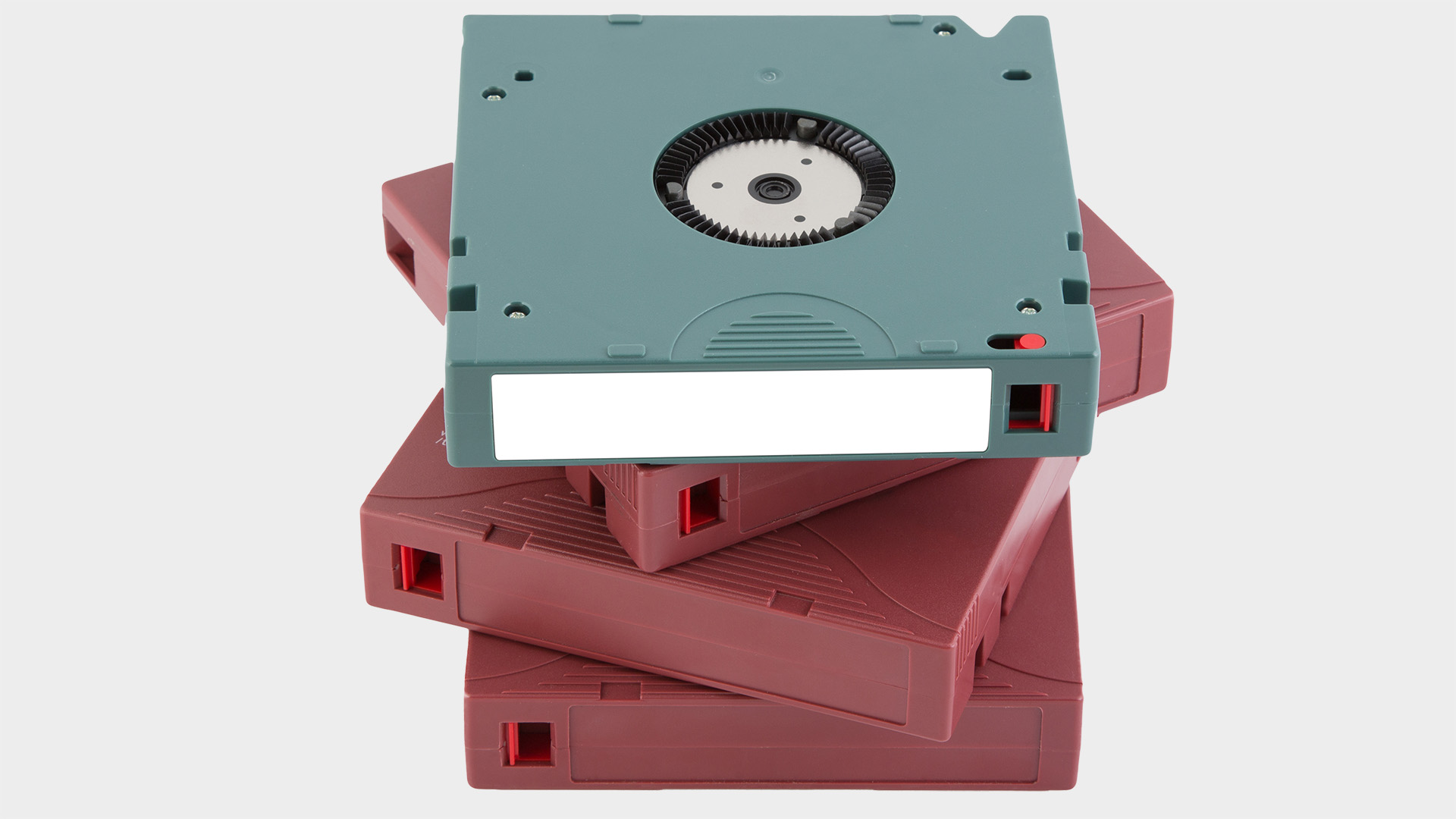Tape storage was up in 2022 while HDD sales fell
Admittedly, not in any gaming rigs we've seen.

Usually here at PC Gamer I'm writing about blisteringly fast storage to get your games up and running as soon as possible. We're talking speedy SSDs that reduce your boot times to the point where they're not even noticeable. In fact, if you're after some of that fast to take away your furious, we have a list of some of our favourite SSDs right here. If you're more of a slow-and-steady strategist, the good news is tape storage is back, with sales of the old school medium on the rise.
You'd be absolutely correct in wondering why anyone could have a use for tape storage in 2023. Most of us running our PCs for general use certainly have no interest in this archaic format.
But with HDD sales dropping year-over-year and Linear Tape Open or LTO on the rise, there is a use for this older, cheaper, but much slower tech.
After looking into the Trendfocus data, Tom's Hardware found that sales of LTO storage for 2022 were up 14% year-over-year in 2022. That's a whopping 79.3 exabytes of tape storage sold. HHDs are still way ahead of course, likely selling in the zetabytes, but the unit shipments were down 34% in 2022. It's predicted that tape drive sales will continue to grow in the future. For those of us still thinking of tape as a defunct medium, those stats are kind of mindblowing.

Best SSD for gaming: the best solid state drives around
Best PCIe 4.0 SSD for gaming: the next gen has landed
The best NVMe SSD: this slivers of SSD goodness
Best external hard drives: expand your horizons
Best external SSDs: plug in upgrades for gaming laptops and consoles
So who's buying all this old format storage? Last year tape storage was on the ride for ransomware resistance. This year, it turns out it's mostly being bought and used by cloud data centres. They use LTO storage for old archives that rarely need to be accessed. While LTO may be very slow by today's standards it's by far one of the cheapest alternatives when you're talking about significant data sizes.
They're also rated for longer shelf-life than some storage mediums, perfect for archiving. Plus they can store a fair whack of data per unit, especially when compared to HDDs. As an added bonus, my nostalgia can only imagine how the rooms full of these babies smell.
When it comes to most individuals, an LTO storage solution doesn't really make a lot of sense. Unless you've got a scary amount of data you don't really want to have access to for 30 or so years, and don't mind waiting on those sequential read and write times, it's hard to see a purpose. But for archival uses, LTO looks like it's here to stay, despite likely never seeing one on our own desks.
Keep up to date with the most important stories and the best deals, as picked by the PC Gamer team.

Hope’s been writing about games for about a decade, starting out way back when on the Australian Nintendo fan site Vooks.net. Since then, she’s talked far too much about games and tech for publications such as Techlife, Byteside, IGN, and GameSpot. Of course there’s also here at PC Gamer, where she gets to indulge her inner hardware nerd with news and reviews. You can usually find Hope fawning over some art, tech, or likely a wonderful combination of them both and where relevant she’ll share them with you here. When she’s not writing about the amazing creations of others, she’s working on what she hopes will one day be her own. You can find her fictional chill out ambient far future sci-fi radio show/album/listening experience podcast right here.
No, she’s not kidding.

